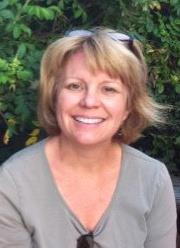Northwords
|
|
|
|
|
At a recent MCELA meeting, the executive board members broke into work groups. Some were stuffing envelopes for the conference mailing; some were crafting a response to upcoming legislation; some were sorting through plastic totes and cardboard boxes filled with the history of MCELA. The papers and documents dated from the early 80’s. After stuffing my share of envelopes, I drifted over to the boxes, curious as to what was inside. Much of it was simply correspondence. It was fascinating to see the tangible remnants of a time before Internet technology. Today, board members can shoot off an email the minute they have something to share, but then, they crafted letters and included drafts of documents - some retyped several times. On one hand, I was nostalgic for the tangible remnants of this time, but these are the years when I began teaching, and I remember how much time writing took and how much more efficient it is now. I am glad communication has gotten easier both in and out of the classroom. It was interesting to see how much those teachers from the mid 80’s and early 90’s accomplished. They published a magazine, Northwords News and Views, a monthly publication of editorials, resources, lessons, and creative writing as well as a yearly book of student writing, and they produced an annual two day conference considerably larger than any we pull off now. Perhaps before technology we all simply had more time, or perhaps our desire for community involvement was more active because it had to be –there were no online friends or professional groups. For a while MCELA shrunk in size and influence. Maybe it is coincidence, but this occurred simultaneously with the rise in social media. We are now expanding operations again, with a robust executive board. We are offering yearly Dine and Discuss sessions, a well attended one day conference, and, in the near future, forays into online or hybrid live/online book groups and resource sharing sessions. We also tweet and post to Facebook. So maybe after a period of contraction in times of change, we are emerging as a stronger resource in our profession. This time I hope our reach, via the ease and flexibility technology affords us, will have a greater impact on those teachers in the farthest corners of the state. As I threw out old agendas and to do lists and saved other documents to be scanned for archiving, I came across an issue of Northwords from 1999. In it, Claudette Brassil had written her “President’s Message.” Addressing the a newly revamped Maine Educational Assessment (MEA) test, she wrote how teachers were “feeling stung” by “the amount of time it takes to administer, bemoaning the amount of instructional time lost, and rightfully concerned about the results because we know that a big finger will be pointed at [teachers]”. I realized this could have been published last year and instead of the MEA, Claudette could have been writing about the SBAC. That old idiom that some things never change popped into my head. When our legislators voted out the SBAC and replaced it with the new SAT, most teachers I know cheered. Certainly the SBAC had died a political death, but it had contributed to its own demise by the amount of time it took from instruction and by its irrelevance to the students. As I thought about the relevance of Claudette’s words, I looked the across the room at Renee and Cindy, who were working on a legislative statement in response to a bill to ditch the Common Core. We’ve spent so much time aligning our curricula and designing the requirements for a proficiency based diploma based on these standards that the notion of getting rid of it for something no better does not seem like a good idea. It undermines our professional credibility, placing our work at the whim of others who then criticize us for not teaching our students to hit constantly moving assessment targets. Certainly, the traits a teacher needs most are flexibility and optimism - then and now. Claudette ended her piece with some ideas that are still relevant: Teachers need to be recognized as the professionals we are. We must collaborate with education departments at colleges and universities to produce our next highly qualified generation. Communities need to support schools, and teacher morale is of utmost importance. The teacher shortages in some states are, hopefully, not a harbinger of our future in Maine. Despite our complaints, we are better off than those in other states where classes of 35 students are routine. Our education system is a grand experiment – one where hypotheses are offered, tested, revised and tested again. Its success depends on assessment data for sure, but students also need teachers who have mastered the art of teaching. This art rises from the partnership teachers foster with their students, first and foremost, but to work its best magic, teachers and students also need the support of an administration and a community with a shared vision. Teaching and learning are collaborative endeavors, often frustrating, but just as often - and sometimes simultaneously - rewarding. I don’t imagine we'll ever find the perfect test or graduate 100% of any class, but we will keep trying. In the meantime, I will focus on what matters: fostering trust so students will take risks and creating opportunities for my students to grapple with big ideas through plenty of reading and writing. If I can do this, they will be ready for the future.  Beth Carlson is an English teacher in Kennebunk, Maine, and immediate past president of MCELA. She is fully occupied by the daily struggle of engaging teenagers so they exhibit grit, don't text in class, become proficient in the standards, develop a growth mindset, love literature, and think critically about the Donald Trumps and Kanye Wests of the world.
1 Comment
|
MCELAprovides Maine teachers of English language arts with opportunities to reflect upon and improve their teaching practices. Archives
September 2023
Categories |
